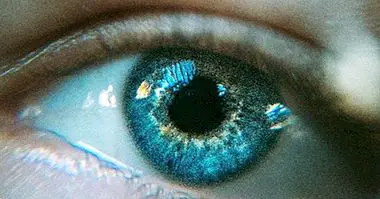Galatea effect: do you believe in your possibilities?
"This child is stupid", "you will never get to anything", "take away, you do not know how to do it". These phrases clearly reflect a negative expectation regarding the person to whom they refer. And not only that, but whether they express themselves or not, they probably perform a series of actions that will cause the subject to introject that idea and end up behaving in the expected way.
This is known as the Pygmalion effect. But there is also an effect related to the same situation, although from a different perspective: we are talking about the Galatea effect.
- Related article: "Self-fulfilled prophecies, or how to make yourself a failure"
The myth of Pygmalion and Galatea
To better understand how the Pygmalion effect and the Galatea effect work, it may be useful to see where these terms come from, being its history linked to mythology .
The myth of Pygmalion presents us as king of Cyprus, who throughout his life had sought the perfect woman to become his wife. However, I could not find anyone. The king decided to dedicate his time to sculpture, art in which he stood out. He decided to represent the perfect woman in one of his works, creating an ivory statue of such perfection that he ended up falling in love with it . Galatea called her and spent a long time admiring her. But the statue did not stop being such a thing.
Pygmalion went to various religious celebrations and prayed to the gods to give him life, and Aphrodite, goddess of love and passion, responded to his pleas. When returning to his home Pygmalion spent long time observing with sadness to Galatea, to finally kiss it. But surprisingly he found that the touch was warm. With a second kiss, Galatea came alive, falling in love with Pygmalion.
- Maybe you're interested: "Self-concept: what is it and how is it formed?"
The Pygmalion effect
Through the myth, we can observe how Pygmalion's wishes and expectations caused him to carry out a series of actions that in turn would lead to those wishes and expectations becoming a reality .
From the same myth we have extrapolated what is called the Pygmalion effect, according to which the expectations we project on others will cause us to do actions that in the long run will generate in the person in question that type of behavior. For example, if we think that a child is not going to achieve anything and we project unconsciously on that idea, in the long run the child is more likely to believe the same and end up fulfilling the behavior and role that was expected of him.
The Pygmalion effect is well known in the world of psychology and education n , can generate a great effect on individuals what others expect from them. But the same as the expectations of others have an effect, so do their own. In this way we can observe the existence of another important complementary effect to this. It is about the Galatea effect.
- Related article: "The Pygmalion Effect: how children end up being the longings and fears of their parents"
The Galatea effect
The Galatea effect it refers to the power of belief in one's own abilities and possibilities or the lack of these when it comes to achieving or not success in our objectives.
If a person feels safe and able to achieve what they want, they will have a much greater chance of reaching their goals because his behavior will be more focused and focused on them . The subject will tend to depend more on their own effort and will feel much more committed to achieving the objectives.
On the contrary, someone who feels unable to achieve what they want, who lacks confidence, will not dare to go with everything to their objectives. He will tend to doubt, to make possible errors and failures visible and his commitment to it will be more fragile, which will effectively be more likely than not to meet his goal.
Its relation to the perception of others
The Galatea effect does not have only an internal connotation. Our self-perception and self-confidence is projected to the outside through our attitudes and behaviors, so that others will capture and train them an image of us based among other things on them .
The image that they form will be more positive or negative according to what they can capture, and that image will influence how they treat us. As an example, if they see us as weak, they may be more likely to try to take advantage of us or protect us, whereas if we project a more determined image they may admire or envy us. Also in the expectations that others form from us
In the same way, the perception that others have of us and what they transmit to us will affect us modifying to some degree our self-perception and with it our way of acting, which in turn makes the Galatea effect and the Pygmalion effect intimately related.
However, what is more important in the face of predict our success or failure is what we think of ourselves and our chances of achieving it, since a person can succeed even if their environment does not believe in it, while someone who does not believe in himself will have much more difficult even if his environment supports it.
Linkage with control locus
The Galatea effect is also related to the locus of control, understanding as such the link we establish between what happens and what we do, that is to say, the attribution of the events to the performance itself or to other factors such as the and .
A person who believes that their successes are due to internal, stable and global factors will conduct much more active and goal-directed behavior, while someone who thinks they are due to external, unstable and particular factors may consider that their successes are not such but mere chance and therefore lose the motivation to fight for their goals.
- Related article: "Theories of causal attribution: definition and authors"



















